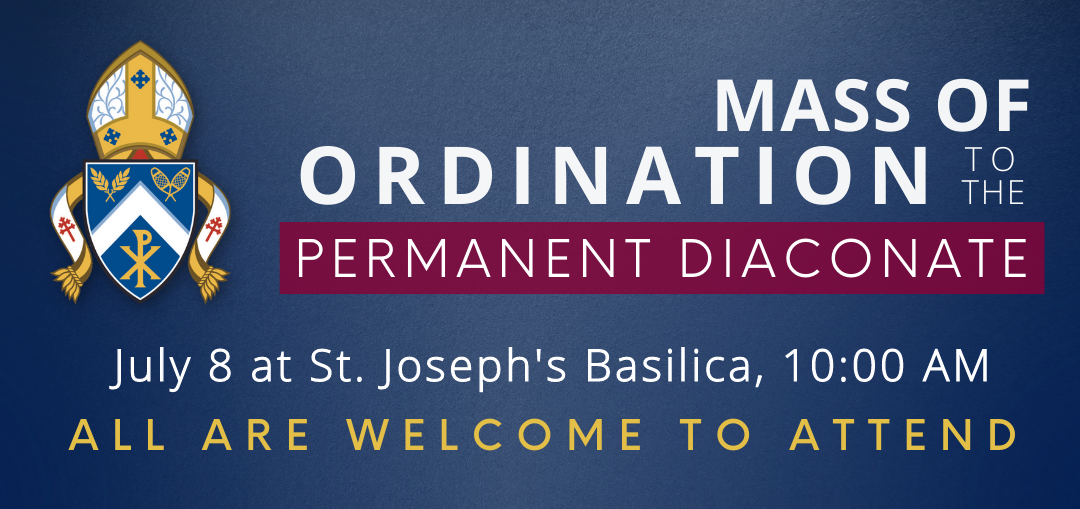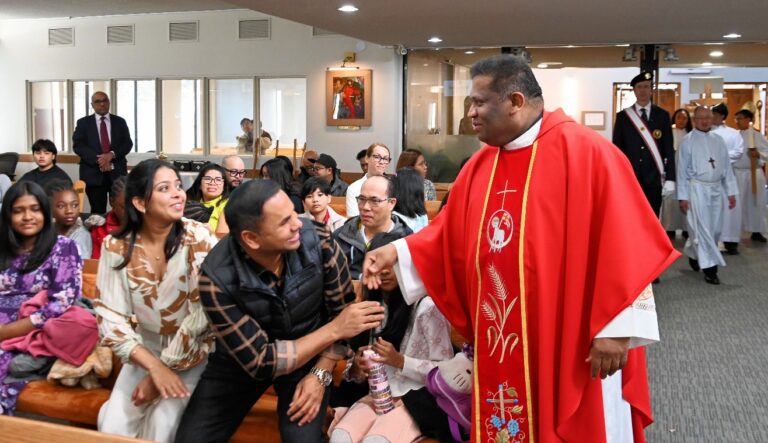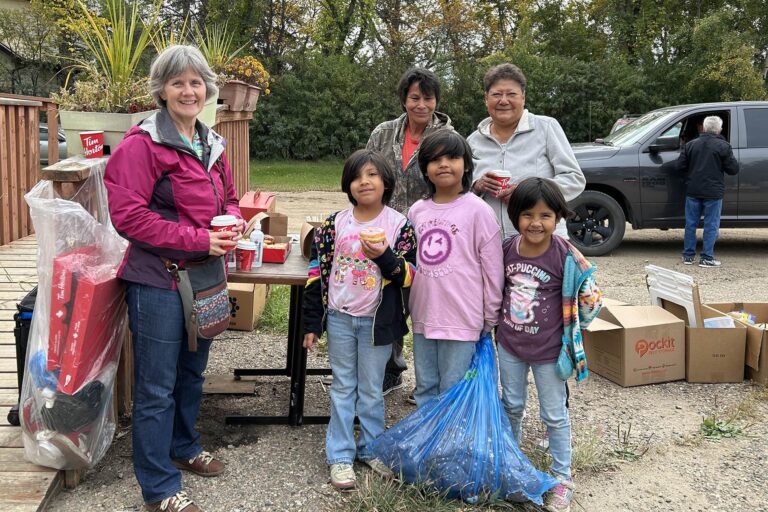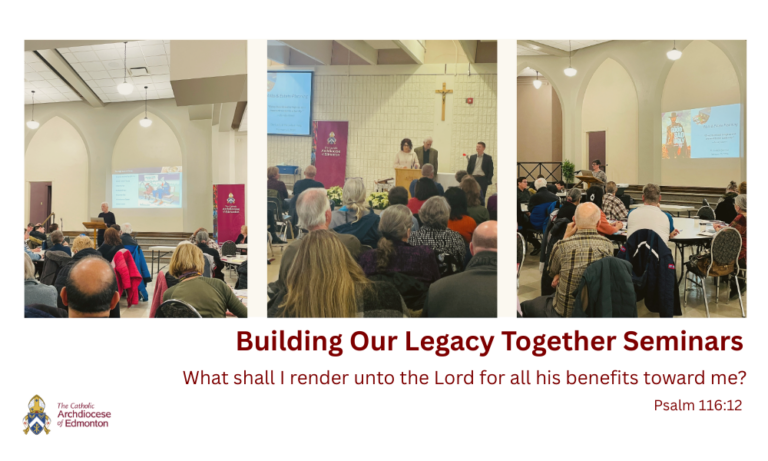Rene Mella is one of three men to be ordained to the permanent diaconate in the Archdiocese of Edmonton on July 8 at St. Joseph\’s Basilica. There are 32 deacons in the Edmonton Archdiocese. In this interview, he shares his formation journey and hopes for the future.
Rafael “Rene” Mella was raised in a devout Catholic family of 10 children. He has been married to Lucy for 37 years and together they have three sons, Rob, Rodney and Randall. With the addition of daughters-in-law Camille and Sarah, they are proud grandparents to Serena, Mateo and Sloane.
Rene recently joined the Archdiocese of Edmonton as its finance lead. A certified professional accountant, he previously worked for 35 years with the Alberta public service. He served and spent his diaconal formation in Corpus Christi Parish. Deacon Rene will be assigned to St. Theresa’s Parish, coming back home to serve the same parish where he and his wife were wed, and where their children received the sacraments of initiation.

Tell me about yourself.
I turn 65 three months after the diaconate ordination.
My nine siblings and I were blessed to have been brought up in devout Catholic family. My father managed the printing press of one of the local archdioceses in the Philippines and my mother taught religious education in a local high school. We witnessed how our parents overcome the challenges of raising a large family, relying heavily on God’s faithfulness to see us through.
I was fortunate to have married a woman whose family was as devout as mine. The combined witness of both our parents provided my wife and I with real life examples of the joys and struggles of living life, propelled by our faith on a loving God.
What attracted you to the diaconate and how did you become involved?
Growing up, my parents always encouraged us to serve the Church and to serve the less fortunate in the best way we can. It was natural for our family to volunteer in Church as it was ingrained in us since we were very young. All throughout life, a good part of what my family did was serve in Church.
As I was advancing towards life, I had always prayed to God for opportunities to do something meaningful with my life especially when I got closer to my retirement years. My inspiration to my late earthly father who encouraged all of us to live lives of service. Through the witness of my parents, God planted this idea of serving him by following the ‘diakonia’ of Christ. I am thankful that I yielded to God’s prompting as I now see a future filled of hope ahead of me, living out the rest of my life actively serving God.
What was the highlight of the formation process? What was toughest part?
For me, there was no specific high point. I would say that the entire formation journey was filled with many significant high points. I enjoyed the progressive pruning I was being subjected and the continued education we were exposed to. Looking back, there are many aspects of my faith which I now have a much better understanding – thanks to the five years of diaconal formation. Throughout the process, I gained a deeper understanding of the origin, substance and context behind the faith that we profess.
The toughest part was having to go back to the classroom after several years of being away from formal education. The other challenge involved juggling the demands of work life with the formation requirements. Over the course of our formation, I gained a healthier sense of my own self-identity which helped counter all the needless anxieties that constantly reminded me of my imperfections and unworthiness to serve God. By God’s grace, I am much closer to my real self after the five years of formation.

In your opinion, why should a man consider the permanent diaconate?
I strongly encourage my brothers out there to give the permanent diaconate serious consideration. For any disciple of Christ, the diaconate provides the best avenue to transform one’s self at the foot of the Cross, and become an instrument of God’s presence in our continually challenged world. Now more than ever, the church is in need of good men to work in God’s vineyard. There are many people in the margins of our society needing our help. The diaconal vocation will enable you to be the hands and feet of Jesus to lift up the down-trodden, free the oppressed and bring healing and comfort to those who are ill.
What particular skills do you have that will help you serve the Church?
My administrative and coordinating skills have been honed through many years working in the public sector. I hope to utilize those same skills in the areas of our church requiring improved organization and administration. Our God is a truly God of order. The more streamlined the structure, policies and processes, the easier it is to navigate and identify those areas of highest need for God’s people. I also hope to impart and share the wisdom that have been freely given to me during formation, by assisting in the catechetical needs of our church. I have yet to stop learning. I know that there will be other skills that God will equip me for the road ahead.
What do you hope to achieve as a deacon and what will be the biggest challenge?
I am conscious of the fact that my work as a deacon is under the authority of the archbishop and the pastor I serve. I have always viewed the diaconal vocation as that of enabling the Church in its mission to baptize the people of God, and to be Jesus’ hands and feet to ease the plight of poor and the marginalized.
My own special areas of interest include helping good marriages become even better and assisting those facing struggles in their union, being present to those single mature adults who have no partners (solo parents), and engaging young people, to encourage them to live meaningful lives of service to others.
In hoping for all these, I am cognizant of the current societal realities, where cynicism, self-centred pursuits and materialism are the prevailing norms of the world out there. I have to bear witness to this mantra: life is truly better lived, if it is done for the benefit of our neighbour and for the advancement and improvement of those in need. At the heart of a true deacon is a heart of charity.



